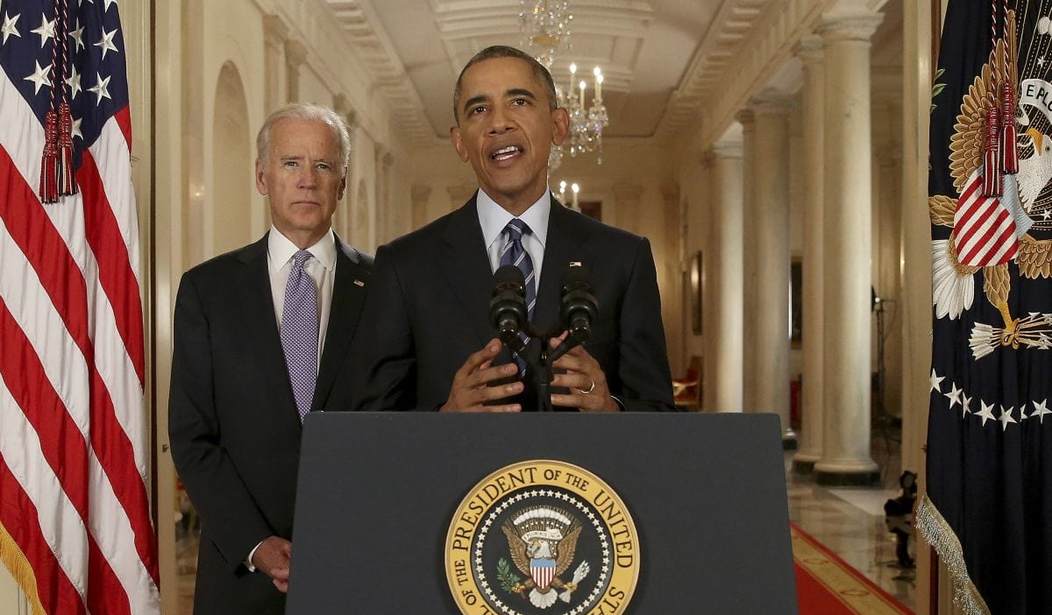There is every indication that Donald Trump will pull out of the Iranian nuclear deal sometime before the May 12 deadline to reimpose sanctions. What are the president’s options? And what will the rest of the world do?
An Associated Press analysis of Trump’s options:
Under the 2015 deal, the United States issued waivers to longstanding sanctions punishing Iran for its nuclear program. Iran, in turn, restricted its program and allowed more inspections.
Trump has essentially two options for re-imposing sanctions.
On May 12, he faces a deadline on whether to renew the waivers that eased one basket of sanctions: those on Iran’s central bank, intended to hit Iranian oil exports. Another basket of sanctions waivers are up for renewal on July 11, focusing on more than 400 specific Iranian companies, individuals and business sectors.
One of Trump’s options, being called “the nuclear option” by some experts, would re-impose all the sanctions at once — even those not scheduled for renewal until July. That would put the U.S. in immediate violation of the deal’s terms, which say sanctions remain lifted as long as Iran is complying with its terms. So far, the International Atomic Energy Agency, the U.N.’s nuclear monitoring agency, has said Iran is complying, and Secretary of State Mike Pompeo agrees.
A second option: re-imposing only the central bank sanctions. That would start a 180-day clock in which companies or countries would be expected to reduce their purchases of oil from Iran. Those that don’t would ultimately be penalized by Washington.
There isn’t much support for the second option among treaty opponents, so it’s not likely that Trump will decide to only target Iran’s central bank. The big question is going to be what to do about European countries whose businesses have billions of dollars in contracts with Iranian firms. Will the U.S. sanction them for violating the sanctions regime?
Germany, France and the U.K. have suggested they have no intention of leaving the deal, even if the U.S. withdraws. But it might not matter much. The global financial system is so interconnected and so tied to New York that it would be almost impossible for anyone anywhere in the world to continue their business with Iran without risk of violating U.S. sanctions. For example, Europe businesses owned or controlled by American parent companies would breach the sanctions if they didn’t cut off Iran.
It’s a major dilemma for European businesses, made even more complicated if the European Union decides to invoke a measure put in place in the 1990s to counter the U.S. embargo on Cuba. The EU can use those regulations to prohibit European companies from complying with some U.S. sanctions. That puts businesses in the position of choosing whether to defy the United States or the EU.
All one needs to do is look at the world before the nuclear deal and then after. The evil genie has been released from the bottle as tens of billions of dollars that were unavailable to a terrorist state suddenly materialized. Iran has used that cash to modernize its military, fund Houthi rebels in Yemen, expand Hezbollah’s role in defense of the tyrant Assad in Syria, and make mischief in Sunni Arab states by stirring up the Shiite minorities.
Add to that the fact that dozens of European businesses have been lining up to do business with the murderous Revolutionary Guard (which holds monopoly power in every major industry in Iran), and you begin to understand the calamity visited upon U.S. interests — and the interests of most of our friends in the Middle East.
Some analysts believe Iran will “restart” its nuclear enrichment program if the deal is breached. Let them. Unlike for the seven years they were allowed free rein to build a bomb, there is now a president in the White House who won’t spend much time wringing his hands if the situation calls for military action. There is also growing evidence that both Israel and Saudi Arabia might join in an anti-Iranian coalition with the U.S. to prevent Iran from getting the bomb.
Iran’s economy is in the toilet, its people are restless for change, and it stands on the precipice of war with Israel over their efforts to develop a forward base to attack the Jewish state. So let them “restart” their nuclear program — which never stopped in the first place — and suffer the consequences of their stupidity.










Join the conversation as a VIP Member